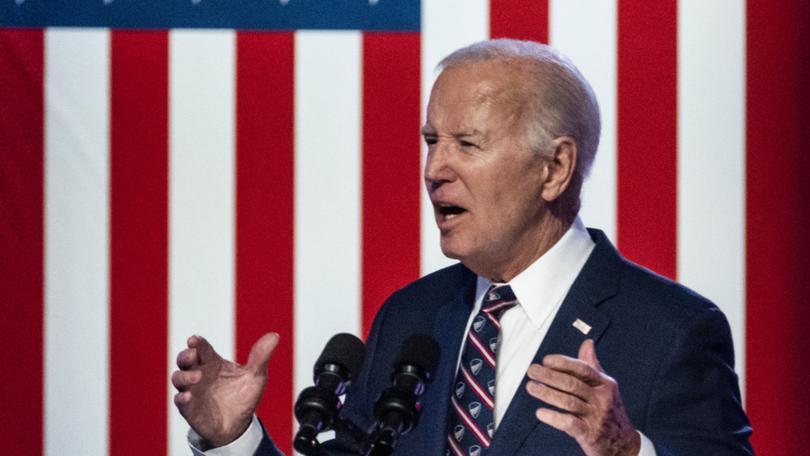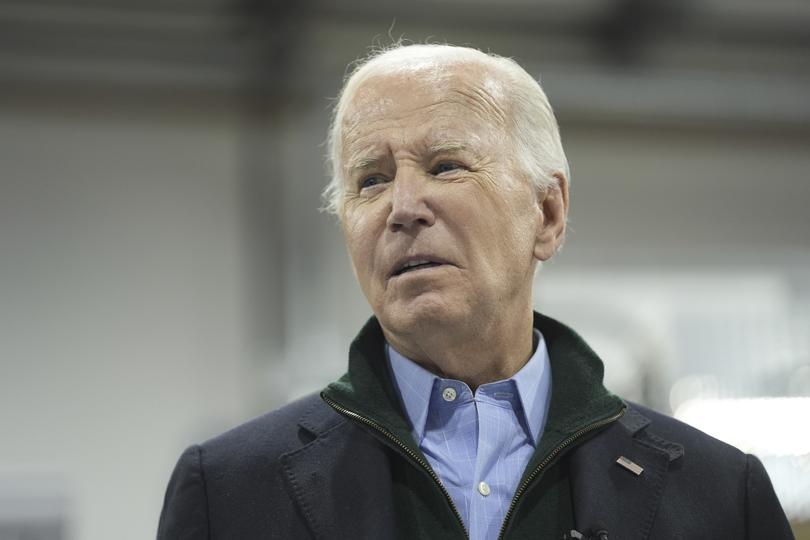The New York Times: Biden to deliver State of the Union address on March 7
It will be the President’s an opportunity to detail his vision of the nation amid a presidential campaign that the White House has described as a test of democracy.

President Joe Biden will deliver his third State of the Union address March 7, an opportunity to detail his vision of the nation amid a presidential campaign that the White House has described as a test of democracy.
In a letter Saturday morning, Speaker Mike Johnson officially invited Biden to deliver the constitutionally mandated speech to a joint session of Congress during “this moment of great challenge for our country.”
“Looking forward to it, Mr. Speaker,” Biden said in a Saturday afternoon post on X, the social media platform formerly known as Twitter. March is unusually late for a State of the Union address, which is typically broadcast nationwide; Biden’s last one fell on Feb. 7. A press officer for Johnson did not respond to a query about the reason for the timing.
Sign up to The Nightly's newsletters.
Get the first look at the digital newspaper, curated daily stories and breaking headlines delivered to your inbox.
By continuing you agree to our Terms and Privacy Policy.
The speech will come at a delicate time for Biden, in the thick of primaries that could effectively see former President Donald Trump established as the nominee.
The date assigned by Johnson also falls after a pair of deadlines on Jan. 19 and Feb. 2 to pass packages that would fund the federal government for the rest of fiscal year 2024 and prevent a shutdown.
Congressional negotiators have yet to agree on even the most basic details of a budget — although leaders have signaled they are optimistic about being able to agree on its overall size, at least, in the coming days.
Johnson is facing pressure from hard-line members of his party who have threatened to block bills to fund the federal government unless the Biden administration sharply cracks down on migration across the U.S.-Mexico border — an issue that is one of the more glaring crises facing the White House.
The invitation also comes amid high-stakes negotiations among the White House and Democrats and Republicans in Congress over aid for Ukraine and Israel that has become a signature piece of Biden’s foreign policy agenda. Republicans have also refused to approve the foreign aid without immigration restrictions. Biden last month accused Republicans of holding the military aid “hostage” to secure “an extreme Republican partisan agenda.”
The speech will provide the president a moment to speak directly to Americans as he struggles to find an effective message that can turn around dismal polling, concerns about his age and lingering frustration with the economy. Despite solid economic data, a November New York Times/Siena College poll of voters in six battleground states found that 81% think the economy is only “fair” or “poor.”
Biden’s aides have said they remain focused on articulating the benefits of billions of dollars of federal investment in infrastructure, clean energy and manufacturing, and on contrasting his agenda with that of Republicans. Some Democratic allies have, however, pushed the White House to more directly call out his most likely opponent.
Biden seemed to do just that Friday during a speech outside Philadelphia, a day before the anniversary of the Jan. 6, 2021, attack on the Capitol by Trump’s supporters.
“We must be clear,” Biden said. “Democracy is on the ballot. Your freedom is on the ballot.”
This article originally appeared in The New York Times.
© 2023 The New York Times Company
Originally published on The New York Times
